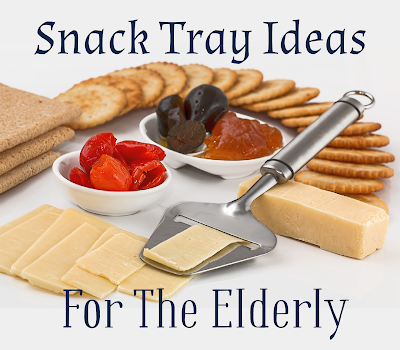A Bright Side to Alzheimer's Disease?
Last year, Meryl was called to the nursing home, where the nurses were having trouble calming down her 91 year old mother, Alice.When Meryl arrived, she found nursing staff trying to coax Alice out of a closet, where she was attempting to barricade herself. Getting down on her hands and knees, Meryl crept into Alice's cave.
"Hey mom. This is a nice little room you have here."
"Its safe in here." Alice whispered, wringing her hands.
"Yes. It seems nice and safe. Are you hiding in here?"
"Yes. I'm hiding."
"Can you tell me why you are hiding?"
Alice suffered from Alzheimer's, and some days she could communicate better than others. Meryl wasn't sure she would get a good response.
"We are being attacked."
"We are? Who is attacking you, mom?"
"We are ALL BEING ATTACKED. You need to get in here with me. Where is the baby?"
"Mom, Brian is in college now. He's all grown up. What makes you think we are being attacked? Did the nurses scare you?"
"I saw it on television. Someone bombed us. They blew up...blew up...some state. I can't remember."
"Oh, no Mom. Its okay. Today is 9/11."
Alice grew more agitated.
"I can't remember 9/11!" she wailed. "What is it?"
Meryl sat in the closet and explained to Alice how the world had ground to a halt 12 years before. It took her several hours to convince her mother that the images on television where old footage.
"Sitting in that closet with my mother was one of the hardest things I've done. When 9/11 happened in 2001, when it really happened, Mom was the one who called ME. I'll never forget what she said to me. 'Meryl, someone has flown a plane into some buildings in New York. Turn your television on! No one knows if there will be another attack--but whatever happens, please remember that I love you!
I can't remember now if I told her I loved her back. By that time I had the TV on and was seeing...devastation. I probably just said OK, mom. When I was in the closet, I realized that 'whatever' had happened. Mom was diagnosed with Alzheimer's. We had to make a lot of changes to our family. But it was okay. Mom still loved me. Even like she was, she wanted to keep me safe.
It was hard, but at the same time, I was happy. For once, I saw the good side to this disease that was stealing my mother. She had no memory of the horrors of 9/11. I wish that was something I could say for myself as well."
-------------------------------------------------------------------------------------------------------
Thank you Meryl, for sharing your 9/11 story on Elder Care Issues.











